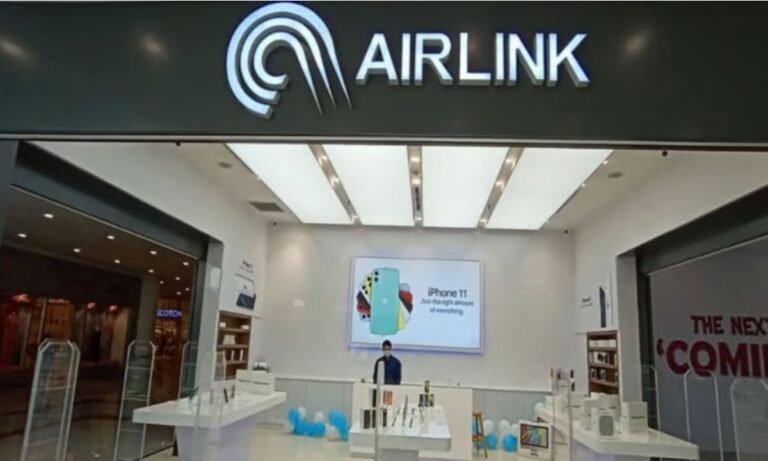Staff Report: Global System for Mobile Communications Association (GSMA) representing mobile operators has called for eliminating the 15% Advance Income Tax and the 19.5% sales tax on mobile services, addressing high spectrum prices, and introducing a smartphone financing policy to improve access to affordable devices.
Pakistan is poised to unlock its economic potential through accelerated digital transformation, according to a new report, “Realising Pakistan’s Aspiration to become a Digital Nation,” launched today by the GSMA at its Digital Nation Summit Islamabad.
The report underscores the country’s significant strides in mobile connectivity and smartphone adoption while outlining a clear path to maximise these gains for the benefit of its citizens. However, achieving these aspirations will require concrete action and reforms.Health Experts Call for Higher Taxes on Sugary Drinks in Budget
The report reveals the blueprint to address these challenges: infrastructure, innovation, data governance, security, and people. These five pillars are the foundation for a thriving digital nation.
The report emphasises the importance of financial reforms and strategic initiatives. Recommendations include eliminating the 15% Advance Income Tax and the 19.5% sales tax on mobile services, addressing high spectrum prices, and introducing a smartphone financing policy to improve access to affordable devices. Additionally, the GSMA advocates for a rational approach to spectrum pricing ahead of the planned 5G spectrum auction in early 2025.
The GSMA’s supporting report revealed a substantial increase in mobile broadband coverage in Pakistan, with 81% of the adult population now in areas covered by 3G or 4G networks, up from just 15% in 2010. Additionally, smartphone ownership reached 63% by the end of 2023. However, only 23% of the population subscribes to mobile internet services, underlining the scale of the challenge to connect the unconnected.
Addressing a Digital Nation Summit here, Julian Gorman, Head of APAC at the GSMA, said: “Pakistan has the potential to realise its aspiration to become a Digital Nation. First it must scale its connected population to strengthen its basic digital economy enabler.
Then by adopting a whole-of-government approach and investing in the five key pillars of infrastructure, innovation, data governance, security, and people, Pakistan can unlock its full digital potential, improve the lives of its citizens, and drive sustainable economic growth. GSMA Warns Pakistan’s New Taxes on Mobile Phones Could Deter Investors
The GSMA is committed to supporting the country’s digital journey and working in partnership to build a connected, inclusive, and prosperous future.”
However, achieving these goals requires addressing significant regulatory and fiscal challenges. While market reforms are hoped for, without changes to the regulatory framework and a reduction in tax, progress will be limited, and the substantial usage gap will remain difficult to bridge.
Aamir Ibrahim, CEO Jazz Aamir highlighted that education, commerce, employment, and health depend on smartphone access today, yet expensive smartphones allow 2G phones to maintain a 40% market share in Pakistan. He advocated for ending 2G phone production and sunsetting 3G networks, noting Jazz’s pioneering efforts in this area.
To achieve the Digital Nation vision, Aamir emphasized affordable smart devices through installment plans, widespread broadband, and QR codes at local stores. He called for an end to overtaxing the telecom sector, urging recognition of telecom as a cross-sector enabler essential for long-term national benefits.
In another panel discussion covering ‘building resilient and sustainable network infrastructures, Kazim Mujtaba, President of the Consumer Division at Jazz, highlighted the company’s journey from a telecom provider to a ServiceCo conglomerate in response to the evolving digital landscape. He said that despite market and regulatory challenges, the company is committed to leveraging technology for the betterment of lives and livelihoods.
Brandon Lewis, Member of the Board of Directors at VEON, while sharing his thoughts in a panel discussion themed ‘Navigating Policy Reforms for a Digital Pakistan’, stressed the crucial role the mobile industry in driving economic growth, championing digital inclusion, and enabling other sectors to thrive.
Despite these contributions, he acknowledged that existing challenges hinder the industry from becoming sustainable partners for the future. To address these impediments, he highlighted the swift implementation of policy interventions that the industry has been seeking for a couple of years now.
These interventions include delinking spectrum prices from the U.S. dollar, adopting a model of extending license payments over a twenty-year period—a strategy successfully implemented in other nations, temporarily suspending industry contributions to the Universal Service Fund and Ignite (R&D fund), and ensuring rightful access to industrial electricity tariffs for the telecom sector.
Mr Ahsan Iqbal Chaudhry, Pakistan’s Federal Minister for Planning, Development and Reform was the chief guest at the Digital Nation Summit Islamabad, where he reiterated the government’s commitment to building a Digital Pakistan and emphasised the government’s support for the tech industry and startups, alongside efforts to foster innovation and drive digital progress.
Minister of State for IT and Telecommunication Shaza Fatima Khawaja said that the present government is committed for the fulfillment of Digital Pakistan vision.
She said that government was working on National IT Policy focused on ease of doing business and tax breaks to accelerate economic activity in this sector.
Minister of State for IT Shaza Fatima said that remarkable progress have been achieved with over 80 percent teledensity and over 190 million subscribers. Our broadband customers continue to grow, she added.
She said that Pakistan’s IT Exports saw record surge as it reached 3.223 billion dollars during FY 2023-24.
She said that there were great opportunities for youth in IT sector, as government is focused upon equipping youth with latest digital skills.
Ali Irfan, Chief Customer Experience Officer at JazzCash, outlined several key policy interventions to accelerate the adoption of digital financial services and forge a cashless society. He urged the need for universal access by integrating smartphones, SIM cards, and digital wallets or bank accounts into the national identity card issuance process, potentially funded through the Universal Service Fund.
To encourage digital payments, Ali suggested reducing taxes for both customers and merchants. He also advocated for the public sector to lead by example by mandating organizations to prioritize digital payments and phase out cash transactions. Irfan emphasized the need to digitize remittances by enabling mobile wallets to receive funds from around the globe.


